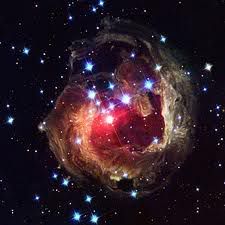
Terms:
cosmologically derived phenomena: they are involved in a cause and effect relationship which may also overlap with intervening variables, such that if we change the conditions that produced a phenomenon the phenomenon would not be as such.
Cosmologically primary related to the cosmos as a higher framework beyond event horizon, yet capable of interacting, eternal, not derived not dependent upon any other source of existence.
Naturalistic: Of or pertaining to the realm of life from life; the process through which biological life, and/or the conditions suited to maintain it come to be. This includes non organic matter such as energy, solids, gases and so forth.
Argument
(1) the connection between empirical and synthetic is that phenomena which ground synthetic statements are based upon cosmologically derivedphenomena: they are involved in a cause and effect relationship which may also overlap with intervening variables, such that if we change the conditions that produced a phenomenon the phenomenon would not be as such.
(2) when we ask "why are we here?" meaning why is there a world and how did it get here we can't answer this question by appealing to cosmologically derived phenomena because that only puts the process of cosmic evolution back one step. It doesn't explain the how or the why of it.
(3) We have no examples of phenomena springing forth form total absolute nothing; all phenomena that we know of in the natural world is cosmologically derived.[1]
(4) The idea of an eternal cosmologically primary aspect of "existence* is a better answer than an appeal to naturalistic means because all naturalistic means is cosmologically derived.
(5) The theistic as well as the super essential PanENtheistic aspect of existence related phenomena* is cosmologically primary.
(6) The verbiage in 7 pertains to "God" as understood in the works of Paul Tillich, Hans Urs Von Balthasar and Dionysus the Areiopagite thus "God" in this sense is the more efficacious explanation than naturalistic phenomena.
*what Paul Tillich means by "being."
This is a new version of the Argument my old cosmological necessity argument. I've changed the terms "necessity/contingency" because they are just easily muddled.
[1]Defense of Premises 1-3:
http://www.loyno.edu/~folse/typesofstatements.html
www.loyno.edu/~folse/typesofstatements.html
Their truth is said to be contingent upon (depends on) the facts concerning the way the world is. Thus all contingent statements are synthetic statements.
"Contingent Statement a statement which could logically be either true or false."
"All true statements which are not necessarily true (logically could not be other than true) are contingently true. Their truth is said to be contingent upon (depends on) the facts concerning the way the world is. Thus all contingent statements are synthetic statements." Ibid
http://wiki.mises.org/wiki/Analytic-...ic_distinction
"the analytic-synthetic distinction is a distinction made in philosophy between two different types of statements or propositions. This distinction is also referred to as the analytic-synthetic dichotomy and the first elucidation of this distinction is credited to Immanuel Kant, who presented it in his work Critique of Pure Reason (1781).
"Analytic statements are those that are made true by the meaning of their constituent concepts and thus do not require further experience for their validation. Or alternately such statements are true as they merely repeat what the content of the concepts presupposes.[1] Analytic statements are also often characterized as tautological in that nothing new is presented in such statements which was not already given in the meaning of the statements concepts.[2] Definitions as well as the propositions of mathematics and logic are analytic propositions. Synthetic statements, on the other hand, are those which require experience for the validation of their truth. Or in other words the truth of a synthetic statement cannot be determined solely by an analysis of the meaning or definitions of its concepts, but rather require a further act of experience for the verification of its truth.[3] Examples of analytic statements are "All bachelors are unmarried" and "A triangle has three sides". While examples of synthetic statement include "It is raining outside" and "There are owls in Austria".
Paul Davies:
"Some scientists have tried to argue that if only we knew enough about the laws of physics, if we were to discover a final theory that united all the fundamental forces and particles of nature into a single mathematical scheme, then we would find that this superlaw, or theory of everything, would describe the only logically consistent world. In other words, the nature of the physical world would be entirely a consequence of logical and mathematical necessity. There would be no choice about it. I think this is demonstrably wrong. There is not a shred of evidence that the universe is logically necessary. Indeed, as a theoretical physicist I find it rather easy to imagine alternative universes that are logically consistent, and therefore equal contenders for reality." First Things: Physics and the Mind of God: The Templeton Prize Address (1999)
[4]"Philosophers commonly relate the analytic-synthetic dichotomy to two other distinctions: firstly that between a priori and a posteriori truths and secondly that between necessary and contingent truths. For many philosopher the distinction lines up as follows: analaytic-a priori-neccessary statements are viewed in a similar light versus the similarity of synthetic-a posteriori-contingent statements. "[4]
Review and Deubuncking of Lawrence Krauss's A Universe From Nothing.
